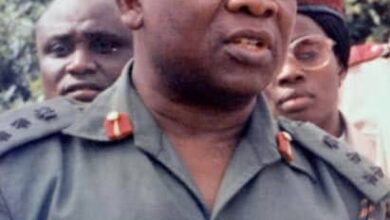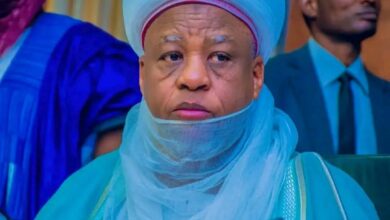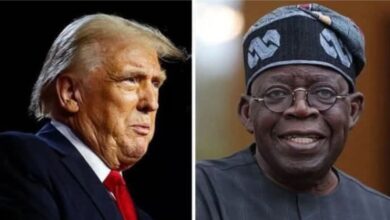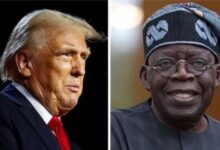You have opportunity to leave a mark as Nigerian President who revived textile, Buhari told
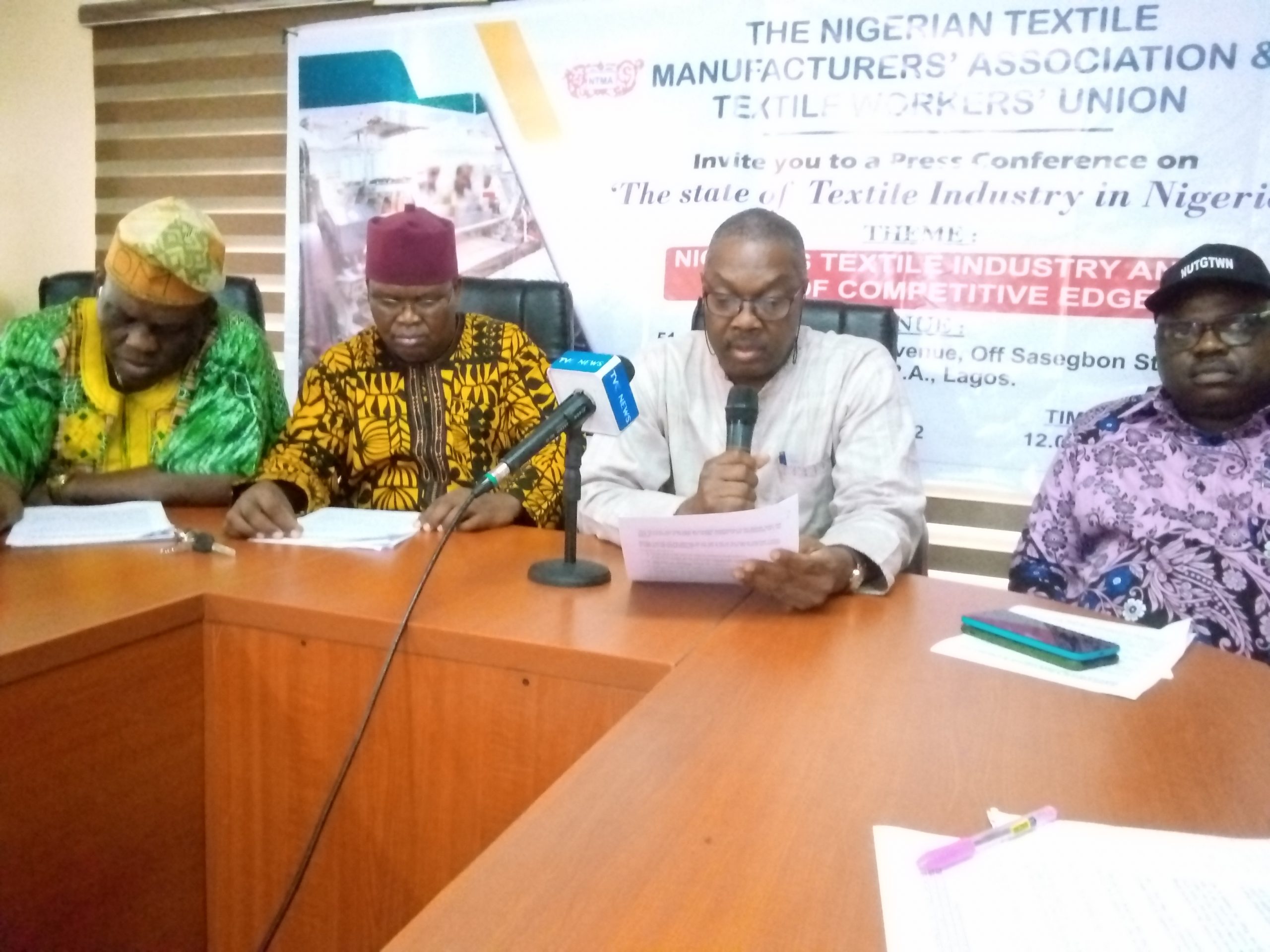
*As Textile Manufacturers, Workers’ Union meeting in Lagos
*A fully revived textile industry will end unemployment, insecurity – Daniyan NTMA President
*Why Nigerian textile cannot compete locally – Kwajaffa NTMA DG
*With Army, Air Force, Navy, police, prisons, others’ wears, Nigerian textile will bounce back – Adaji Textile Workers’ Union President
*Let President Buhari’s 100m jobs creation starts with textile sector revival – Adebayo NTMA Vice President
*We have run out of patience, we will storm Abuja soon – Ali Baba, Union General Secretary
By BASHIR ADEFAKA

According to the NTMA DG, South Africa has 50,000 megawatts of electricity to support manufacturing and other power needs of the country but in Nigeria, we have 4,000 megawatts all together. “This is the challenge. We cannot compete domestically”, he said.
The seeming irresolvable issues surrounding the President Muhammadu Buhari’s promised Cotton Textile Garment (CTG) revival programme in the Nigerian economic sector has been described as one that is unsettling the few surviving manufacturers and workers’ union of the Nigerian textile industry.
This was as Nigerian Textile Manufacturers Association (NTMA) and National Union of Textile, Garment and Tailoring Workers of Nigeria (NUTGWN) converged in Lagos on Thursday, after which they had the first jointly addressed press conference, to ventilate their worries and angers at the inability of government to fulfill its promises and assurances about reviving the sector and restore its lost glory for the good of the nation, its economy and that of its workforce.
The DEFENDER recalls that while textile and garment did well boosting self and national economies in other countries like India, Indonesia, Ethiopia, Brazil during the Coronavirus lockdown period, the sector in Nigeria remained the same as it was left to itself and self-struggle of members, who went through pains and agonies in order not to lay off workers and yet assistance they were publicly promised did not come. This is in spite of the fact that textile industry has record of being once second largest employer of labour in Africa’s most populous country and, currently, has been adjudged the sector that has the largest chunk of imports in the Nigerian Bureau of Statistic (NBS) report of 2021.
Kaduna Textiles Limited, for instance, was one of the legacies of the late Premier of Northern Nigeria, Sardauna of Sokoto, Sir Ahmadu Bello, established in 1957 and commenced operations in 1959. This, like many other textile mills including the United Nigeria Textiles Mills Limited (UNTML) of Lagos, Kaduna, Arewa Textiles and more in the country, is now moribund thereby contributing to the high unemployment rate in the country.
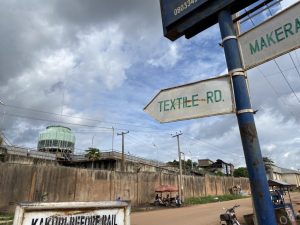
The neglect of the textile sector has generally been described as not only sad but that it has also become so apparent that even the sector, itself, is crying for help.
The manufacturers and workers’ union at their joint press conference in Lagos on Thursday May 12, 2022 complained that even with the Central Bank of Nigeria (CBN)’s CTG revival, some of their companies are still closing down. They said government’s intervention fund that is being talked about is not a grant but loan, except that it comes with single digit rate. Despite that, the manufacturers at the meeting said the process of accessing the loan has been so difficult for targeted members who are the intended beneficiaries.
Our findings revealed that Nigeria Customs Service and civil service have a lot of questions to answer on why all the efforts and measures put in place by the government, especially, of President Muhammadu Buhari for a successful CTG revival programme are yet to see the light of the day. This is because, it was gathered further that, if the customs action against textile smugglers, promised 10 percent charge on approved textile imports at the point of entry and procurement department of government where the ‘Buy and Use Made-in-Nigeria products’ have performed, the textile in the country would not be in bad state as it is.
Therefore, the manufacturers and textile union, corroborating our findings, pointed out that the main problem militating against revival of the textile industry in Nigeria remains the lack of enabling environment and political will, on the part of government leaders, to ensure action especially against some of the things that Nigeria Customs Service officials and civil servants do, which hamper the effort of government to actualise its good intention of reviving the textile industry in the country.
The Buhari administration, the groups on the outcome of their meeting, was told that until these enabling environment and political will to make things really happen for the sector are worked upon, no matter how much money is pumped into the sector, there will be nothing to show.
In a prepared speech, President of the Nigerian Textile Manufacturers Association (NTMA), Mr. Folorunsho Daniyan, who addressed the joint press conference on “the state of the textile industry in Nigeria and lack of competitive edge globally”, on behalf of the NTMA and Textile Workers’ Union, started on a sad note that at 65th anniversary, textile industry in Nigeria still crawls and seriously dwindling.
“If the truth must be said: our industrial sector is dying and needs urgent interventions from the federal government to keep it alive,” Daniyan said.
More saddening, he said, is the fact that a textile sector that stood at 175 textile companies in 1985 has shrunk to less than 20 companies with its job workforce that was 137,000 in 1996 and which cut down to 24,000 in 2008 now dropping to less than 20,000 as at present, May 2022.
“This is sad for an industrial sector that was once adjudged the highest employer of labour in Nigeria after the federal government in the 1980s when it had a manpower of 500,000 workers under its employment.
“Nigerian textiles used to be a key manufactured product that was exported through the formal channels and by way of cross-border trade in West and Central Africa. However, export of textile products suffered a setback between 2003 and 2008… Textile exports touched their lowest ebb in 2006, however, recovered some lost ground in 2007-08. Today, the situation is even worse as our exportability is next to zero.”
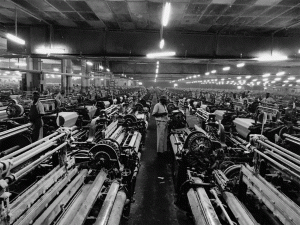
NTMA President Folorunsho Daniyan, continuing, did not fail to highlight what the factors militating against revival, survival and declining export capacity of Nigeria’s textile sector of the economy are. These, he listed, include the “*Loss of preferential market access in the EU and US; *Inconsistent implementation of EEG policy, particularly a perennial backlog of EEG claims; *Inconsistencies in the implementation of ETLS (ECOWAS Trade Liberalization Scheme.”
Noting that recent Nigerian Bureau of Statistics trade report for 2021 showed clearly that textile material was the most imported material into the country, Daniyan expects a government, which truly wants national economic growth from the non-oil sector, should not ignore the textile that accounts for over 95 percent of the market share in Nigeria even as import.
Challenges
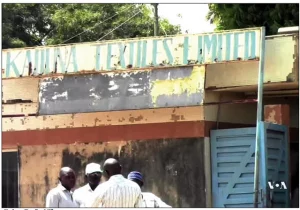
On the state of the industry, he said: “It should be observed that in spite of the efforts to revive the textile industry, the sector is still confronted with many challenges that included high-cost of production that has rendered its products non-competitive; unrestrained smuggling and counterfeiting of Made-in-Nigeria textiles; poor patronage in spite of Federal Government of Nigeria’s Executive Order 003 of 2017, inadequate and costly electricity supply, poor infrastructure, high taxation, and interest rates, high cost of diesel and LPFO and the depreciating value of the naira.
“It is noted that the state of the industry particularly in the North is made worst by the heightened insecurity that is pushing away customers of the few existing industries in the North and also discouraging new investment in the area.
“We wish to emphasise that the government must do more to provide the enabling environment for the revival of the textile industry in Nigeria and manufacturing activities in general.”
Demands
“We also demand establishment of a Presidential task force made up of relevant stakeholders including the textile manufacturers and union with the power to confiscate goods smuggled into the country and recall that a similar task force existed during the administration of former President Olusegun Obasanjo.
“We also wish to state clearly that the promised benefits of the African Continental Free Trade Agreement (AfCFTA) will elude Nigeria if the illegal imports textile fabrics and other products Nigeria have the capacity to produce locally continue to find their way into the Nigerian markets unchecked.”
While acknowledging measures by Federal Government through the Ministry of Industry, Trade and Investment, the Central Bank and the Bank of Industry aimed at the textile industry revival, they called for urgent stakeholders meeting that must include the union to objectively review some of the measures, already put in place, to ascertain the level of success as well as the challenges.
They identified lack of patronage as one of the major problems of the textile industry in spite of the Executive Order 003 on patronage of locally produced goods and called on relevant agencies of government to comply with the executive order by patronising locally produced goods to avert further factory closures and the attendant loss of jobs.
Revived textile industry will end unemployment, insecurity
“We are also calling on President Muhammadu Buhari to ensure holistic implementation of the Cotton Textile Garment (CTG) policy, noting that the textile industry remains a critical plank for addressing the current high level of unemployment and attendant security challenges in the country.
“A fully revived textile industry is capable of creating, millions of jobs, addressing the security challenges in the country, improving internally generated revenue, reducing billions of dollars in import bills incurred annually on textile and apparel, safeguarding and earning foreign exchange for the country.
“Garments Sector is capable of providing the requisite needs of Nigeria IGR (internally Generated Revenue) because many countries like Indonesia, Bangladesh do not have Petroleum yet they compete favourably with their peers in the Comity of Nations through Garments production.
“We also urge the state governments to complement to complement the federal government’s efforts through complimentary bold industrial policies that with revive closed factories in their localities such as the provision of infrastructure, granting of of genuine tax incentives, and patronage of Made-in-Nigeria products.
“Let us put it on record that we commend the Governor of Anambra State, Professor Chukwuma Soludo, for embracing the wearing of Nigerian made fabric, The Akwuete, and urge other government functionaries in the federal, state, and local governments to emulate his worthy example of the consumption of local fabrics.”
Daniyan also sought creation of industrial parks to address infrastructural problems, resolution of the issues of raw materials using specific initiatives for cotton production like the BT cotton and the creation of a cotton buying centre. He also made a case whereby the tariff chargeable to the industry of an electricity consumption should be competitive even with Ethiopia, South Africa, Kenya and Egypt, while the levy on raw materials export of 25 percent must be at par with the import that is just 5 percent, as well as ensuring that the Executive Order 003 be rebranded and re-launched because it has not taken effect and that then sought the cancellation of VAT charges in Nigeria Textiles as was done to Ghana Textiles.
Others, who contributed during the question and answer section at the briefing, included the Director General of the Nigeria Textile Manufacturers Association, Alhaji Hamma Kwajaffa, President, National Union of Textile, Garment and Tailoring Workers of Nigeria (NUTGWN), Comrade John Adaji, Vice President of the NTMA, Dr. Michael Ola Adebayo and Acting General Secretary of the NUTGWN, Comrade Ali Baba, all of who attended the first joint meeting from across the textile centres of Nigeria.
Responding to media question on why they had not spoken out or that whether they were afraid and what they were afraid of that had made them kept silence while the textile sector went moribund as it has now become and on what the several billions the government has pumped to reviving the textile has not been able to show, Director General NTMA Hamma Kwajaffa, addressing the question particularly asked by The DEFENDER, said: “You know that we have not been keeping quiet and you and Leadership Newspaper have been carrying our stories over the times about the plights of the sector,” he said.
Kwajaffa, continuing, said the challenge of the textile is enormous but emphasized the area of political will as, according to him, there can be nothing wrong if President Muhammadu Buhari and members of his Federal Executive Council will attend the weekly meeting wearing Ankara and other Nigerian fabric to prove and promote Made-in-Nigeria textile products.
According to the NTMA DG, South Africa has 50,000 megawatts of electricity to support manufacturing and other power needs of the country but in Nigeria, we have 4,000 megawatts all together. “This is the challenge. We cannot compete domestically.
“In terms of GDP, textiles was contributing 12.5 percent in the 80s. It was government that said 10 percent of import must be taken at border by customs, but they did not implement it.,” he said.
In his contribution, President of Textile Union, Comrade John Adaji, recalled that the textile stakeholders had met with President Buhari in Aso Rock Presidential Villa in 2019, during which he promised accelerated solution to the problem of the sector and then that there was Executive Order 003 to that effect, which up till now, no assessment has been done by government to know how the order has impacted.
Like Kwajaffa, Adaji, who equally cited the good example of South Africa, gave kudos to President Matamela Cyril Ramaphosa saying it was just a policy that he made in that BRICS member country that transformed its textile sector whereby the President did the simple thing of saying “Buy South Africa, Wear South Africa”.
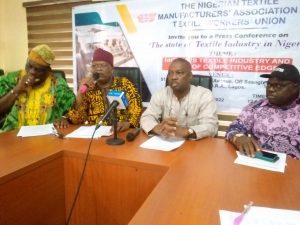
“The Army, prisons, police wears alone are enough to transform textile in Nigeria. What is lacking is the political will,” Adaji said.
The second home of President Buhari is Kaduna. He knows the huge impact the textile, as the second largest employer of labour in its working days, can make to his commitment to creation of 100 million jobs and economic diversification through the revitalization of the industry.
“If under his watch he leaves textile worse than he met it, it is will be a disappointment. We have run out of patience. We will storm Abuja if we do not see improvement.
“President Buhari has opportunity to leave a mark as Nigerian President who revived textile,” Adaji said.
In his contribution, Vice President NTMA, Dr. Michael Ola Adebayo, recalling how and why companies that made Nigeria strong economically closed in the past said:
“If the Federal Government wants to make our Naira to be strong, they should go and bring back all those companies that left Nigeria and create enabling environment for them to thrive.
“When President Buhari says he is looking for 100 million jobs, we are boldly saying his starting point should be textile sector. And you can get that from statistics report of 2021 that says the highest importation in the last 12 years is textile.
“Since government reduced import tariff, we have not been able to clear our goods because Customs is not making it easy. We have sent 50 workers home and will still send more if the business is no longer easy,” he said.
In his simple remarks, Acting General Secretary of Textile Workers’ Union, Comrade Ali Baba, said: “We have suffered enough and we are now prepared to go to the street. We will storm Abuja very soon,” he vowed.
Asked what the country’s economy loses from textile sector not working, the NTMA President, Daniyan, said at the time it functioned, UNTML Kaduna alone was running a three shifts of 3,000 workers per shift. That, he said, did not include transportation of workers per each of the three shifts, food vendor.
“It is mind burgling what Kaduna economy has lost from closure of UNTML alone not to talk of Arewa Textile and the rest of textiles in Nigeria,” he said, adding that if the challenge confronting the sector is solved, since it used to contribute N400 billion to the economy, it can contribute more to it.



